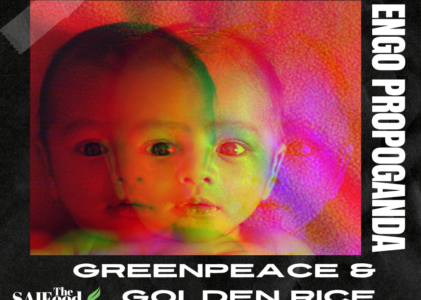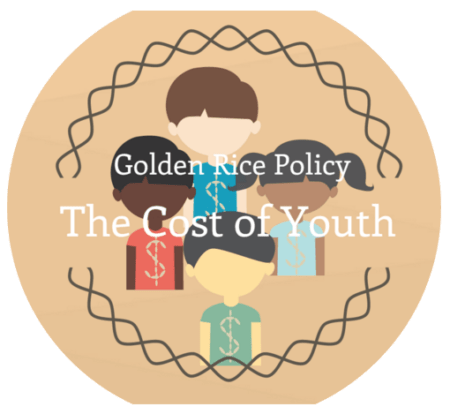Environmental activists opposed to improving rice nutrition
In late July 2021, the Philippines became the first country on the planet to approve Golden Rice for production and human consumption. Twenty years ago when the Golden Rice technology was licensed to Syngenta, the approval for production and consumption was expected to occur within a handful of years. It was widely thought that Golden Rice would be providing humans with increased Vitamin A by 2005. Regrettably, the 16 years of delays are based entirely on politics and the leading environmental activist organization opposed to Golden Rice has been Greenpeace. The comment below was sent to me by an individual who listened to a Greenpeace activist being interviewed. The comment speaks to how much misinformation there is about Golden Rice and how groups like Greenpeace are not advocating with the knowledge that is truthful.

Let’s one thing straight
Monsanto doesn’t, and never has owned Golden Rice. Golden Rice has been developed by the International Rice Research Institute, an international and publicly-funded research center located in the Philippines. Roughly over 70 patents previously existed regarding aspects of Golden Rice technology and IRRI, along with assistance from the Rockefeller Foundation, were able to negotiate free licensing for all of the patents.
The reasoning of Golden Rice
The devastating reality of Vitamin A deficiency (VAD) is that globally, 124 million children are deficient, with up to two million children under the age of 5 dying annually from the lack of Vitamin A. To provide context for this figure, it amounts to 228 children dying every hour or, in the 3-4 minutes it will take you to read this blog, 12-16 children will have died. Vitamin A deficiencies result in childhood blindness. According to Unicef, one in three children worldwide do not receive enough vitamin A, and VAD is the “leading cause of preventable childhood blindness and increases the risk of death from common childhood illnesses such as diarrhea”.
The benefit of Golden Rice is in the increased Vitamin A content. Since rice is a staple crop for many regions suffering from VAD, developing a vitamin A rich rice was a strategic choice for adoption, use, and production in these regions. Details about how science has been safely applied to increase Vitamin A in rice can be found at the Golden Rice Project’s website. To date, 158 Nobel Laureates, as well as over 13,000 scientists and individuals, have publicly called on Greenpeace to end its campaign against technologies capable of reducing the rate of childhood death in developing countries. It is simply unfathomable, not to mention unethical, that Greenpeace would be opposed to any technology capable of increasing Vitamin A availability and reducing the rate of childhood death.
For Greenpeace – politics matter, not the environment
Greenpeace was founded in the 1970s as an organization focused on protecting the environment. Why has it shifted focus to become the global leader in fighting improvements to childhood nutrition? Initially, Greenpeace was an organization that supported many aspects of science but has since jettisoned all scientific basis for their advocacy, or more realistically, their propaganda campaigns. It’s become evident that the deliberate spread of false information, known as disinformation, has become a successful business model. Numerous activist organizations have adopted this business model and knowingly disseminate information that is false to scare the public into donating money to fund the ‘fight’ against these dangerous technologies. While Greenpeace began as a leader of environmental activism, over the years and through the various campaigns they led, they have shifted from being stalwarts of science to shunning science.
Greenpeace has transitioned from an organization that was concerned about the environment, to one that now fights against improved food security and reduced childhood blindness. Many people who have previously donated money to Greenpeace are now questioning whether Greenpeace represents their views, in regard to its unethical stance on Golden Rice. I’ve heard from many current Greenpeace supporters who have indicated they will no longer donate to Greenpeace. While there hasn’t been a lot of good news during the pandemic, this certainly counts as good news. I encourage any individual who donates to Greenpeace and is concerned about the lack of ethics demonstrated by Greenpeace, to seek alternative organizations to donate to. Alternatively, supporting organizations involved in ensuring that Golden Rice is readily available for farmers, their families and consumers, would be an excellent cause to support.
Check out my 2016 blog on Golden Rice and the cost of delayed approval has had on lives and the economy here.


